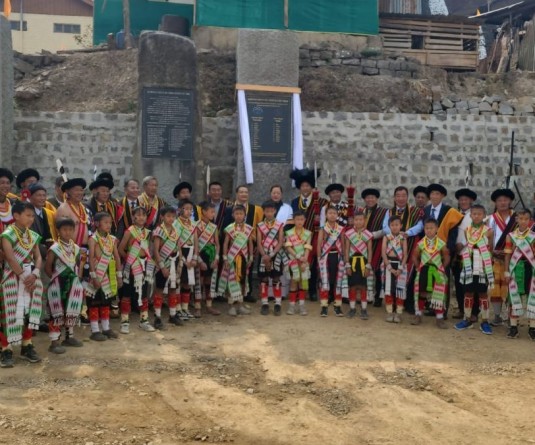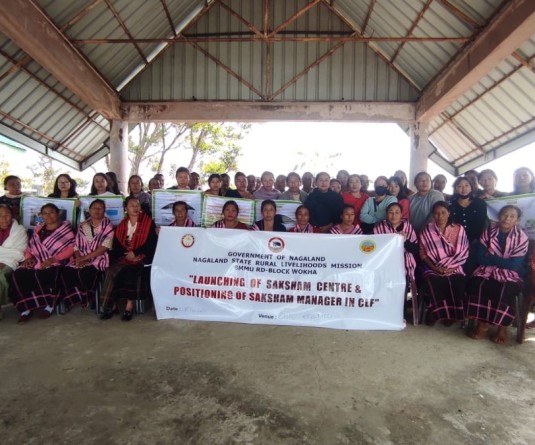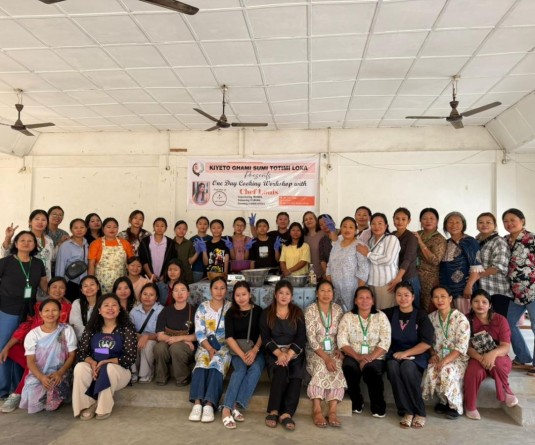
Dimapur, July 27 (MExN): The Nagaland Government must make a paradigm shift in its land defence policy and set a meaningful precedent in the interest of the Naga people, rather than relying on outdated rhetoric and symbolic gestures, NSCN-K (Niki) stated today.
Joining a host of organisations and other entities in expressing concern over the recent evictions in Assam and the need to secure the border, it attributed the “policy paralysis in defending Naga ancestral areas” not only to the current political parties in power but also to all past governments, stating that each has contributed to the present situation.
“This lackadaisical state of affairs has plagued successive political parties in power, which has ultimately led to this present state of affairs,” stated a press release from the MIP, NSCN-K (Niki).
Providing context to its accusations, the Naga Political Group (NPG) led by General (Retd.) Niki Sumi alleged that the recent eviction exercise in Assam was a “well-planned and precisely executed strategy” to occupy Naga ancestral areas, fictitiously dubbed as the ‘Disturbed Area Belt’ (DAB), citing colonial-era British demarcations that had transferred Naga lands for administrative convenience without consulting the Nagas.
As per the NPG, successive ruling parties of the Assam Government have been insidiously encouraging, over the decades, the policy of settling what it alleged as “illegal Bangladeshi immigrants” in the disputed areas bordering North-East states, with the intention of “illegally occupying” lands.
Accordingly, in the name of evicting undocumented immigrants, the Assam Government has “double-crossed” the Nagaland Government by violating the existing status quo and occupying Naga ancestral areas by permanently stationing Assam police in the so-called DAB, it further claimed.
The NSCN-K (Niki) also accused the Assam Government of hiding its real intentions and using the eviction as an excuse, while pointing out that Assam has boundary disputes with the majority of the states along its inter-state borders.
In this regard, the NPG said the Naga public should seriously question the Nagaland Government on how political visits during times of tension—described as mere “photo op visits”—followed by neglect, help in defending ancestral lands from the ‘illegal occupation’ by Assam Police.
Instead, according to the NSCN-K (Niki), Nagaland is facing an “unprecedented situation” where police personnel, home guards, and others are allegedly competing for postings in commercial town areas, seeking personal gain at the cost of the Naga economy.
Hence, it argued that the priority should be strengthening border security by recruiting and deploying more police, home guards, and village guards, rather than raising concerns over excess staff in other departments.
However, it noted that the Nagaland Government appears more focused on creating specialised units like SOT and STF to ‘act’ against its own people, rather than using resources to protect Naga lives and lands.
Is the Nagaland Government trying to exist only as an online Digital State without geographical land? it posed.
In this connection, the NSCN-K (Niki) called for a paradigm shift in the State Government's border defence policy.
It is also a wake-up call for partisan Nagas who support one NPG over another to begin holding their favoured groups accountable and urge them to defend and protect Naga ancestral lands, it added.
The NPGs must not shy away from their responsibility to defend ancestral lands, rather than merely seeking taxes or contributions, and the Nagas must seriously reflect on what kind of nation they aspire to be if the people are separated from their lands, the NSCN-K (Niki) added.






